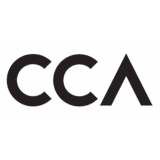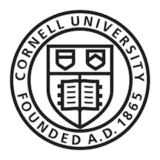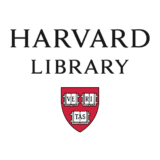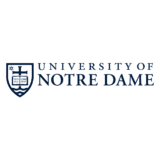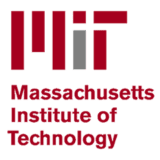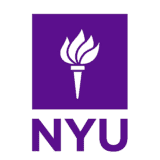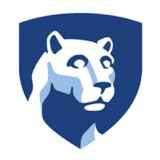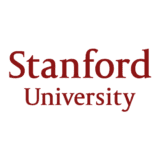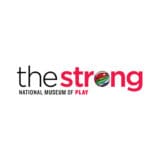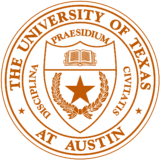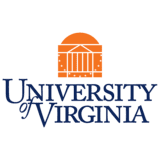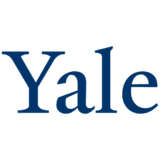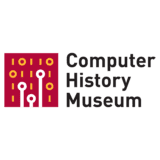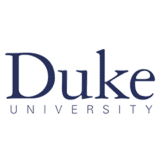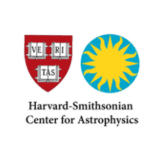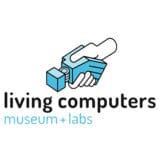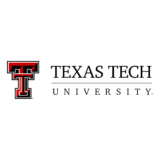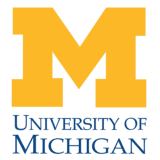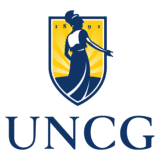Mission
The Software Preservation Network (SPN) is a coordinated, distributed effort to ensure long term access to software through community engagement, infrastructure support, and knowledge generation.
Guided by the belief that software is critical information infrastructure, SPN works to create a space in which organizations and individuals from cultural heritage, industry, academia, government, and the public sphere can contribute their myriad skills and capabilities toward collaborative solutions that will provide persistent access to software and software-dependent data.
SPN believes that software should be curated and preserved because it is both: a dependency to access existing digital data and because it has intrinsic cultural value due to its mediating role in our lives. Software is critical information infrastructure.
SPN was formed in 2016 during the Software Preservation Network Forum in Atlanta, Georgia, USA. Our growing network includes colleagues from university libraries, museums, research data archives, public libraries, design firms, and the open source software community. Individual participants range in role and perspective, including legal scholar-practitioners, digital preservation specialists, metadata specialists, data curators, digital conservators, knowledge managers, archivists, software developers and data journalists.
SPN is committed to fostering an open, inclusive, and safe environment. Please see our Code of Conduct for more information.
SPN 2024-2026 Goals
Community Engagement Goals
2024
- Articulate an outreach strategy by the end of 2024 that meets the demonstrated needs of both members and non-members, supports broad access to SPN content on software preservation practices, connects practitioners together, and brings greater attention to software preservation.
Lead: Community Engagement Collaborative - Create and deliver at least two SPN publicity and outreach presentations for administrator audiences by the end of 2024.
Lead: Coordinating Committee
2025-2026
- Develop a strategy for collaborative software collection development that empowers documentation of the diversity of software creators and users.
Lead: Research-in-Practice Working Group
Infrastructure Support Goals
2024
- Continue interventions in tri-annual DMCA rulemaking process, with a focus on maintaining current exemptions for software preservation and seeking new exemptions for remote access to video game software and removal of the one-user-at-a-time limit on remote access to non-video game software by the end of 2024.
Lead: Law and Policy Working Group - Create a resource for the SPN website by the end of 2024 to index which organizations are collecting which software titles and types, as a critical input to the creation in 2025-2026 of a strategy for collaborative software collection development that empowers documentation of the diversity of software creators and users.
Lead: Research-in-Practice Working Group - Identify the organizational resources required for a SPN Working Group to apply for a grant-funded project by the end of 2024.
Lead: Coordinating Committee, in collaboration with Law and Policy Working Group
2025-2026
- Pilot a formal cross-institutional expertise/labor-sharing model for software preservation and curation.
Lead: Coordinating Committee - Apply for a grant-funded research project on aligning international law and policy approaches to software preservation.
Lead: Law and Policy Working Group
Knowledge Generation Goals
2024
- Document 3-4 examples of using the Software Metadata Recommended Format Guide by the end of 2024.
Lead: Metadata Working Group - Publish CLIR Pocket Burgundy “Overview of Emulation as a Preservation Method” by the end of 2024.
Lead: Technological Infrastructure Working Group - Publish an Emulation Information Resource by the end of 2024.
Lead: Technological Infrastructure Working Group - Publish an Emulation Information Resource by the end of 2024.
Lead: Technological Infrastructure Working Group - Contribute software preservation definitions and use-case-driven good practice recommendations to a software curation guidebook by the end of 2024.
Lead: Research-in-Practice Working Group
2025-2026
- Conduct an environmental scan and gap analysis of software preservation training and education resources.
Lead: Community Engagement Collaborative - Conduct environmental scan and gap analysis of documentation about standards and methods that advance good practice in preserving software.
Lead: Research-in-Practice Working Group
Organizational Coordination Goals
2024
- Finish creating multi-year financial plan by the end of 2024.
- Articulate a membership growth and retention strategy by the end of 2024.
- Clarify or formalize relationships, partnerships, or collaborations between SPN and EaaSI, and SPN and Software Heritage by the end of 2024.
- Revise SPN publication policy by the end of 2024.
Lead: Coordinating Committee
2025-2026
- Create strategy to recruit diverse slate of Coordinating Committee nominees and members.
- Visualize SPN work and outputs on a timeline to assess and demonstrate impact and help clarify scope of work.
- Refine criteria for starting or supporting affiliated projects.
- Explore how a formal community roadmapping process could benefit SPN in the medium-term.
Lead: Coordinating Committee
Values

Community
SPN connects and engages the diverse communities of information and communication technology, cultural heritage preservation, law, public policy, social science, natural science, arts, and humanities organizations that create, use and curate software.

Sustainability
SPN encourages the software development and research communities to build tools; develop methodologies; create robust documentation; and adhere to practices for software that facilitate long-term access.

Access
SPN enables long-term access to software and software-dependent cultural heritage through standards development, documentation, software development, and training.

Transparency
SPN is dedicated to earning the trust of our broad community through open documentation, open processes, and open standards.

Advocacy
SPN raises awareness for the essential role of software preservation in effective digital stewardship through the combined efforts of collecting organizations, academic researchers, legal experts, software developers & vendors, archivists, media archaeologists, and information technology professionals.
Approach
SPN applies a Collective Impact approach as follows:
-
Common Agenda
SPN connects and engages the diverse communities of information and communication technology, cultural heritage preservation, law, public policy, social science, natural science, arts, and humanities organizations that create, use and curate software.
-
Shared Measurement
SPN members determine what specific, measureable steps the community can take towards the collective agenda. SPN currently has seed-funded goals for 2019 – 2020 which allow members to measure progress towards the collective agenda.
-
Reinforcing Activities
Stakeholder-specific work (the work of a single organization or grouping of organizations within SPN) must be coordinated so that each group’s work bears an explicit, reciprocal relationship with the work of the whole collective.
-
Constant Communication
Constant communication is necessary to demonstrate a commitment to fairness and evidence-based decision making overtime. SPN uses internal meetings, community events and the STACKTRACE Newsletter to exchange information.
-
Backbone Organization
Paid staff undertake the coordination and management of the day-to-day facilitation work, including stakeholder engagement, communications, and data collection and analysis.
Staff
Our team of passionate, dedicated professionals represent varied perspectives and areas of expertise. We all share a commitment to long-term access for software and software-dependent materials.
-
Brandon Butler
Law & Policy Advisor
Jaszi Butler PLLC -
Jessica Meyerson
Interim Community Facilitator
Educopia Institute
Members
-
Canadian Centre for Architecture
Montreal, Quebec -
Cornell University
Ithaca, New York -
Georgia Tech
Atlanta, Georgia -
Harvard Library
Cambridge, MA -
Hesburgh Libraries of Notre Dame
Notre Dame, Indiana -
Massachusetts Institute of Technology
Cambridge, Massachusetts -
National Film and Sound Archive of Australia
Canberra, Australia -
New York University
New York, New York -
Penn State University
State College, Pennsylvania -
Stanford University
Palo Alto, California -
The Strong National Museum of Play
-
University of Texas at Austin
Austin, Texas -
University of Virginia
Charlottesville, Virginia -
Yale University
New Haven, Connecticut
Founding Members
-
Canadian Centre for Architecture
Montreal, Quebec -
Computer History Museum
Mountain View, California -
Cornell University
Ithaca, New York -
Duke University
Durham, North Carolina -
Georgia Tech
Atlanta, Georgia -
Harvard/Smithsonian Center for Astrophysics
Cambridge, Massachusetts -
Living Computers: Museum + Labs
Seattle, Washington -
Massachusetts Institute of Technology
Cambridge, Massachusetts -
New York University
New York, New York -
Penn State University
State College, Pennsylvania -
Stanford University
Palo Alto, California -
Texas Tech University
Lubbock, Texas -
University of Michigan
Ann Arbon, Michigan -
University of North Carolina at Greensboro
Greensboro, North Carolina -
University of Texas at Austin
Austin, Texas -
University of Virginia
Charlottesville, Virginia -
Yale University
New Haven, Connecticut
Join Us
The Software Preservation Network (SPN) is a collective action effort ensuring long term access to software through community engagement, infrastructure support, and knowledge generation. Network participation includes colleagues from design firms, public libraries, history of computing museums, research data archives, university libraries and the open source software community.
Learn more about the benefits of membership and sponsorship on the Get Involved page.


